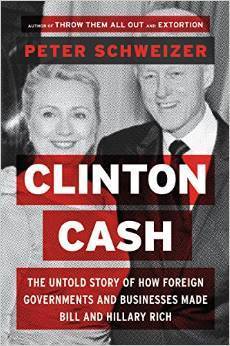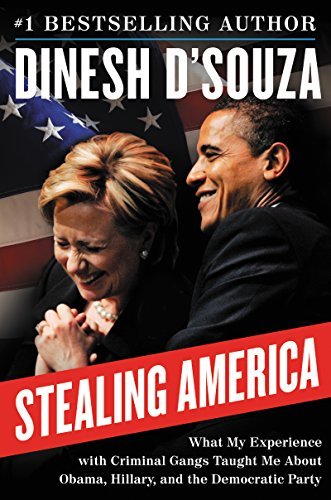
Clinton Cash: The Untold Story of How and Why Foreign Governments and Businesses Helped Make Bill and Hillary Rich
Book Description
A fortune forged in the shadows—where influence and ambition collide. "Clinton Cash" uncovers a riveting web of secrets, revealing how foreign governments and corporations funneled staggering sums into the Clinton empire. As Bill and Hillary Clinton ascended the political ladder, a troubling exchange unfolded: power for profit. With gripping detail, Schweizer exposes the murky transactions and ethical dilemmas that threaten to dismantle the facade of American politics. What happens when wealth becomes intertwined with duty, and who pays the price for ambition? The stakes are higher than ever—are the Clintons truly above suspicion?
Quick Book Summary
"Clinton Cash" by Peter Schweizer investigates the intersection of wealth, influence, and politics within the Clinton family, particularly during and after Bill Clinton’s presidency and Hillary Clinton’s tenure as Secretary of State. The book alleges that foreign governments and businesses paid substantial sums to the Clinton Foundation and, in return, received favorable treatment, access, or decisions that benefited their interests. Schweizer meticulously traces donations, speaking fees, and business deals, suggesting a pattern where the Clintons’ public roles are intertwined with their personal enrichment. The book raises questions about transparency, ethical conduct, and the broader implications such “pay-to-play” arrangements have for American politics. Though controversial and debated, it aims to illuminate the murky overlap between public duty and private gain.
Summary of Key Ideas
Table of Contents
The Fusion of Political Influence and Wealth
Peter Schweizer begins by outlining how the Clintons transitioned from the White House into a global sphere of influence, using the Clinton Foundation as a central hub. The book scrutinizes the remarkable rise in both Bill and Hillary Clinton’s earnings from speaking engagements and philanthropic activities, highlighting how much of this newfound wealth came from foreign entities coinciding with political influence. The author introduces documented cases, tracing timelines that suggest a link between donations and subsequent policy decisions or access.
Controversial Foreign Donations and Speaking Fees
A core section focuses on foreign donations to the Clinton Foundation, especially from governments and major corporate interests seeking American favor or influence. Schweizer details how funds from countries with controversial human rights records or vested business interests were accepted, often while Hillary Clinton held significant policy power. He underscores the lack of transparency laws applying to the Foundation and the opaque nature of many transactions, painting a picture of potential back-channel deals.
Allegations of Pay-to-Play Arrangements
Schweizer presents several case studies where foreign actors received apparent benefits shortly after making large contributions or securing Bill Clinton for high-priced speeches. Examples include uranium mining rights involving Russian entities and trade approvals advantageous to donors. These narratives are supported by timelines and public records, but the book acknowledges that direct quid pro quo is difficult to prove. Nevertheless, Schweizer contends that patterns of access and favorable treatment strongly suggest implied exchanges.
Conflicts of Interest and Ethical Dilemmas
Throughout, the book discusses ethical dilemmas arising when former presidents or their spouses blend global charitable work with national and international policymaking responsibilities. The potential for conflicts of interest, according to Schweizer, erodes trust in public institutions. He questions the safeguards in place to prevent the perception or reality of political favors being bought, emphasizing the blurred boundary between philanthropy and personal gain.
Implications for American Democracy
In closing, Schweizer reflects on what these arrangements mean for the state of democracy in America. He argues that the case of the Clintons is emblematic of broader issues confronting modern politics, where power and profit often interlace. The author calls for greater transparency, accountability, and enforcement of ethical standards lest the public’s faith in democratic institutions be undermined by unchecked influence-peddling and the perception that public service can be leveraged for private enrichment.
Download This Summary
Get a free PDF of this summary instantly — no email required.





